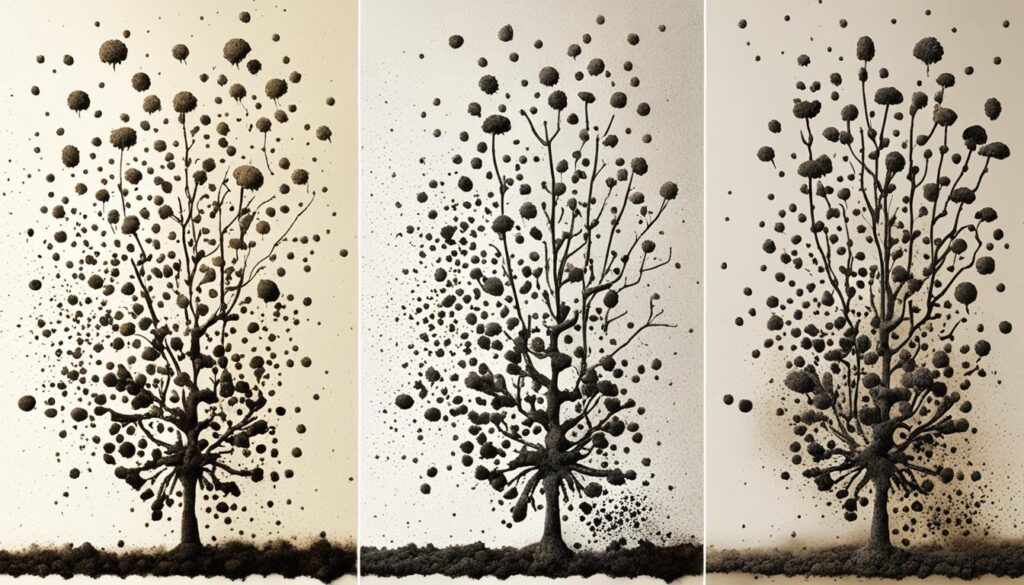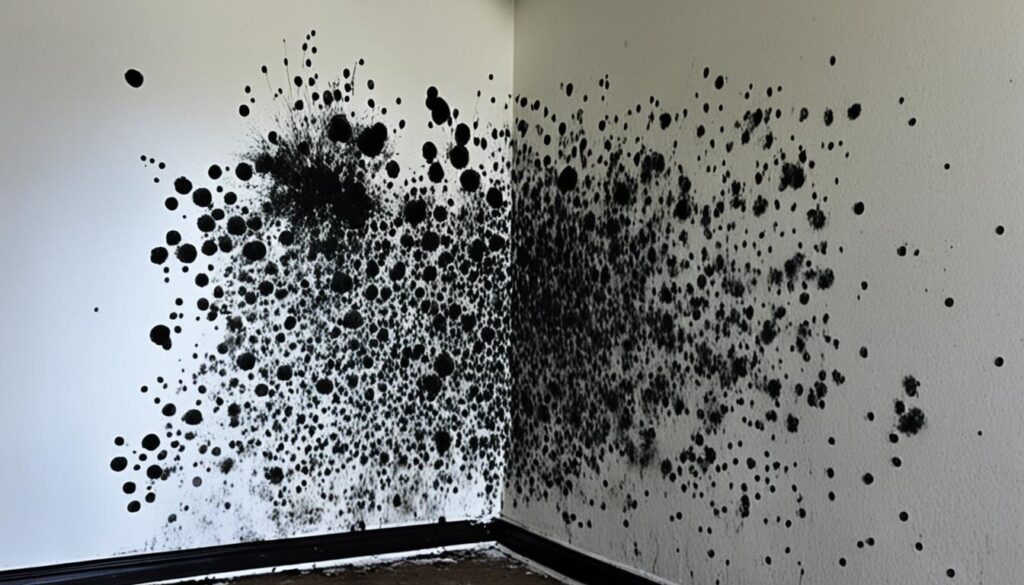
Innovative Techniques for can black Mold cause cancer
Welcome to our informative article on the potential link between black mold and cancer. Mold is a common household problem that can pose various health risks, and understanding its potential impact on our well-being is crucial. In this section, we will explore the health risks associated with black mold exposure and provide expert insights on the topic.
Black mold, scientifically known as Stachybotrys chartarum, is a type of fungus that thrives in damp and humid environments. When it comes to our health, black mold can release spores and mycotoxins into the air, which, when inhaled or touched, can lead to various health issues.
There have been concerns about a possible link between black mold and cancer. While extensive research is still ongoing, some studies suggest that prolonged exposure to black mold may increase the risk of certain types of cancer. However, it’s important to note that more research is needed to establish a definitive connection.
In the next sections, we will dive deeper into understanding black mold and its effects on health, as well as examining the potential link between black mold and cancer. We will provide you with valuable insights based on scientific studies and research to help you better understand the risks associated with black mold exposure.
Key Takeaways:
- Black mold is a type of fungus that can release spores and mycotoxins into the air.
- Prolonged exposure to black mold may increase the risk of certain types of cancer, although further research is needed.
- Understanding the health risks associated with black mold exposure is crucial for maintaining a healthy environment.
- Regular mold inspections and proper mold remediation can help minimize the potential health risks.
- If you suspect black mold in your home, it’s important to consult with professionals to assess and address the situation.
Understanding Black Mold and its Effects on Health
When it comes to indoor air quality, one particular concern that often arises is the presence of black mold. Black mold, also known as Stachybotrys chartarum, is a type of fungus that can grow in moist and humid environments. It is characterized by its dark greenish-black color and a slimy texture.
Black mold has gained attention due to its potential health effects. Exposure to black mold can lead to various symptoms and health issues, especially in individuals with weakened immune systems, allergies, or respiratory conditions. The toxic properties of black mold can have serious implications for our well-being.
There are several different types of black mold, including Stachybotrys chartarum, Aspergillus niger, and Cladosporium. Each type has its own set of characteristics and health risks.
Stachybotrys chartarum: This type of black mold is often associated with moisture-damaged building materials, such as drywall and wood. It produces mycotoxins, which are toxic substances that can negatively impact our health when inhaled or touched.
Aspergillus niger: Another common type of black mold, Aspergillus niger, thrives in damp indoor environments. It can cause respiratory issues, especially in individuals with asthma or allergies.
Cladosporium: Cladosporium is a common indoor mold that can appear black or dark green. It is often found in areas with high humidity, such as bathrooms and basements. Exposure to Cladosporium can trigger allergic reactions and respiratory symptoms.
Signs and Symptoms of Black Mold Exposure
Exposure to black mold can lead to a range of health symptoms, which can vary depending on the individual and the duration and intensity of exposure. Common signs of black mold exposure include:
- Respiratory issues, such as coughing, wheezing, and shortness of breath
- Nasal congestion and sinus problems
- Allergic reactions, including skin rashes, watery eyes, and sneezing
- Fatigue and headaches
- Brain fog and difficulty concentrating
If you suspect black mold in your home or workplace and are experiencing any of these symptoms, it is important to seek professional assistance and address the issue promptly to minimize potential health risks.

Black mold can have serious implications for our health, particularly for individuals with respiratory conditions or weakened immune systems. It is crucial to identify and address black mold problems to maintain a healthy indoor environment.
The Link Between Black Mold and Cancer
Scientific studies and research have been conducted to determine whether there is a direct link between black mold and cancer. While the findings are not conclusive, there is evidence suggesting a potential association between black mold exposure and an increased cancer risk.
Black mold, also known as Stachybotrys chartarum, is a type of mold that produces toxic compounds called mycotoxins. These mycotoxins can be released into the air as mold spores, which can be inhaled or ingested by humans.
Exposure to black mold and its mycotoxins has been linked to a range of health effects, including respiratory issues, allergic reactions, and immune system suppression. Some studies have also indicated a possible connection between black mold exposure and certain types of cancer.
One study published in the American Journal of Industrial Medicine found a positive association between black mold and lung cancer among individuals working in damp or moldy environments. Another study published in the journal Environmental Health Perspectives suggested that black mold exposure may be associated with an increased risk of breast cancer.
It is important to note that more research is needed to establish a definitive link between black mold and cancer. The studies conducted so far have their limitations, such as small sample sizes and difficulties in accurately measuring mold exposure levels.
“While the link between black mold and cancer is not yet fully understood, it is crucial to take precautions and address any black mold infestations promptly to minimize potential health risks.”
To protect yourself from black mold and its potential health risks, it is essential to address any moisture issues in your home or workplace. This includes promptly fixing leaks, improving ventilation, and properly drying any areas affected by water damage.
If you suspect black mold growth in your environment, it is advisable to hire a professional mold inspector or remediation company to assess and mitigate the issue. They can identify the source of mold growth, remove the mold safely, and provide recommendations to prevent future infestations.
| Key Points | Implications |
|---|---|
| Exposure to black mold and its mycotoxins has been linked to a range of health effects. | Black mold exposure may increase the risk of developing certain types of cancer. |
| Studies suggest a positive association between black mold and lung cancer. | More research is needed to establish a definitive link between black mold and cancer. |
| Proper moisture control and prompt remediation are essential in preventing black mold growth. | Addressing black mold infestations can help minimize potential health risks. |

Conclusion
After examining the potential link between black mold and cancer, it has become clear that mold exposure carries certain health risks. While there is currently limited scientific evidence to definitively establish a direct causal relationship between black mold and cancer, several studies suggest a possible correlation.
Research has shown that black mold spores can produce mycotoxins, which are toxic substances that can be inhaled or ingested. These mycotoxins have been associated with various adverse health effects, including respiratory issues, allergies, and even immune system suppression. Although the exact mechanisms through which black mold may contribute to the development of cancer remain unclear, it is important to acknowledge the potential danger mold exposure poses.
Addressing mold exposure is crucial in minimizing the potential health risks associated with black mold. Preventive measures such as proper ventilation, moisture control, and regular inspection can help prevent mold growth. In cases of mold infestation, it is recommended to seek professional help for safe removal and remediation to ensure the complete elimination of black mold.
In conclusion, while the direct link between black mold and cancer is not yet fully established, the potential health risks of mold exposure cannot be ignored. It is essential to take proactive steps to prevent and address black mold infestations to safeguard our health and well-being.




